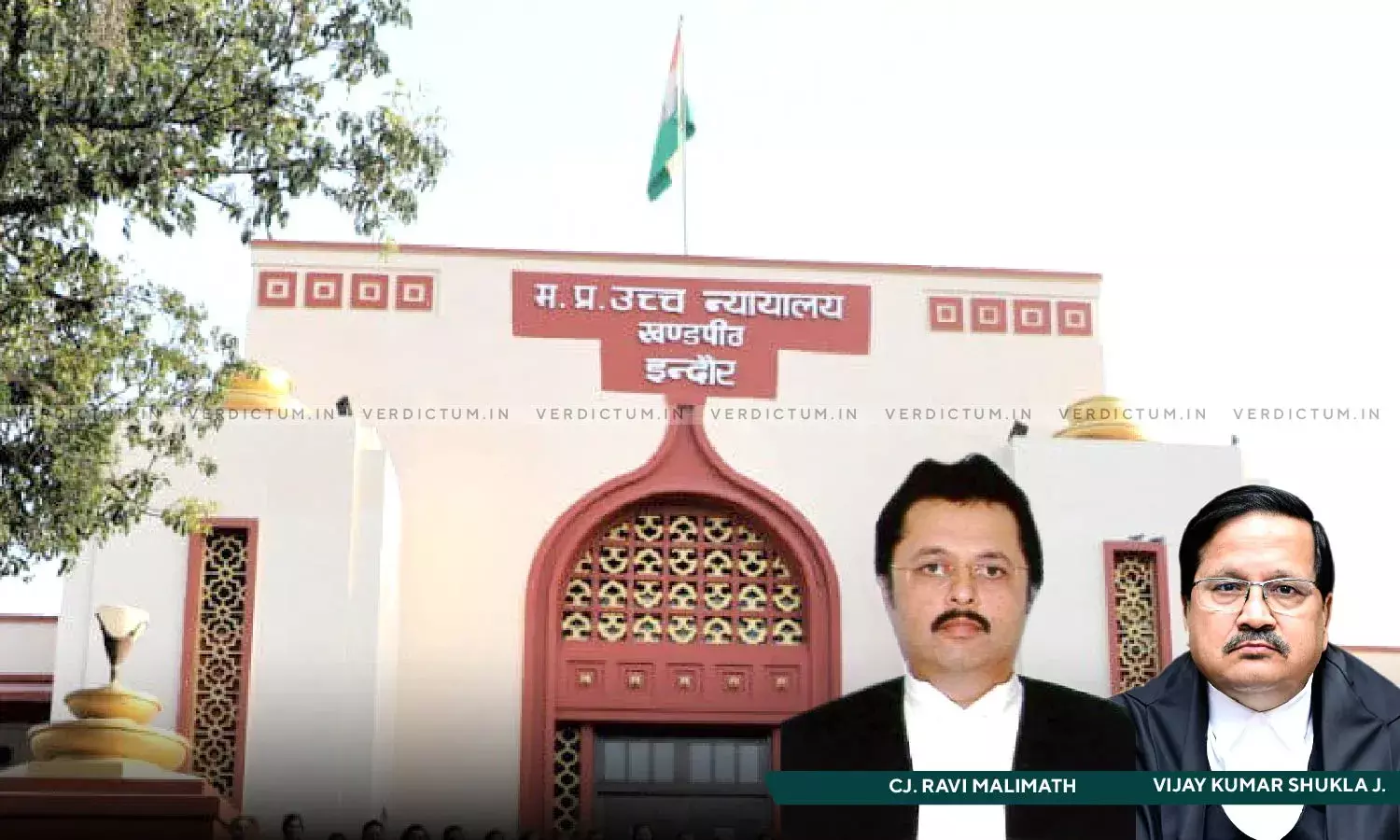Permitting The Parties To Reopen Concluded Judgments Is An Abuse Of Process Of Law And Have An Adverse Impact On Administration Of Justice: Madhya Pradesh HC
The Madhya Pradesh High Court held that allowing parties to revisit concluded judgments through multiple interim applications is a clear misuse of the legal system and could significantly undermine the administration of justice.
The Court dismissed the Petition seeking review of the orders and noted that in the Rule of Law, finality of judgment is absolutely imperative and great sanctity is attached to the finality of the judgment.
The Bench headed by Chief Justice Ravi Malimath and comprising Justice Vijay Kumar Shukla observed, “permitting the parties to reopen the concluded judgments by filing repeated interlocutory applications, is clearly an abuse of process of law and would have far reaching adverse impact on the administration of justice”.
Senior Advocate Sunil Jain appeared for the Petitioners and Additional Advocate General Archana Kher appeared for the State.
The review petition was filed challenging two previous orders in light of an order passed in a special leave petition. The respondent argued that the second review was not permissible as the petitioner had exhausted all remedies, including a writ petition and appeal, without specific permission from the Apex Court. The case involved the petitioner's land included in a town improvement scheme, which was challenged through various legal avenues. The petitioner initially filed a writ petition in 1987, which was later allowed due to procedural irregularities. Subsequent appeals were dismissed, leading to finality. The petitioner later filed another writ petition in 2001, without disclosing relinquishment of land rights made during the earlier petition.
The Court framed the following issue: “Whether second review petition arising out of proceedings under Article 226 of the Constitution of India is maintainable or not and if maintainable what is the scope of interference under such proceedings?”
The Court acknowledged the well-established legal principles governing the power of review. It emphasized that a review can only be entertained if there exists an error apparent on the face of the record. Previous cases have affirmed the High Court's authority to review its orders under Article 226 of the Constitution. Shivdeo Singh and Ors v State of Punjab and Ors [AIR 1963 SC 1909] established that the High Court possesses inherent power to review its orders to prevent miscarriage of justice or correct serious errors. However, in the present case, the petitioner had already exhausted the remedy of review and sought a second review, which is not permissible under the law.
The Bench underscored the Chief Justice's inherent power to assign judicial business and constitute benches. It highlighted the observation that the provisions of the Civil Procedure Code (CPC) don't apply to writ proceedings, which are extraordinary and distinct from civil or criminal proceedings. The judgment also clarified that the review power in Article 226 proceedings extends to appeals arising from such proceedings.
Referring to the case of Rajendra Prasad Gupta v Prakash Chandra Mishra and others [(2011) 2 SCC 705], the Court noted that courts have the authority to adopt procedures to ensure justice unless expressly prohibited. However, the judgment did not address the specific issue of whether a second review is permissible in proceedings under Article 226 of the Constitution of India, hence it does not support the petitioner's argument.
The Bench accepted the petitioner's prayer to withdraw the petition with liberty to approach the High Court but did not grant liberty to file a review petition after the dismissal of the review petition by the High Court. Even if such liberty were granted, it must be examined in light of the law's provisions. Therefore, the court concluded that a second review petition is not maintainable. The petitioner had exhausted all remedies, including writ appeal and review jurisdiction, and even withdrew the Special Leave Petition (SLP) without any adjudication on merit. Allowing the submission of the petitioner's counsel would lead to endless litigation and contradict the doctrine of finality, especially in proceedings under Article 226 of the Constitution of India.
Furthermore, the Court referred to the case of Supertech Ltd. v Emerald Court Owner Resident Welfare Association and emphasized the paramount importance of finality in judicial decisions in a country governed by the Rule of Law. Permitting parties to repeatedly challenge concluded judgments through interlocutory applications constitutes an abuse of the legal process and severely hampers the administration of justice. In the current case, the petitioner had exhausted all available remedies, all of which were dismissed by the courts. The petitioner's counsel failed to identify any significant errors in the court's orders. Therefore, the petitioner cannot exploit the review jurisdiction to re-litigate the matter repeatedly.
Accordingly, the Court dismissed the Petition.
Cause Title: Sadashiv Joshi v The State Of Madhya Pradesh
Appearance:
Petitioner(s): Senior Advocate Sunil Jain and Advocate Romesh Dave
Respondent(s): Additional Advocate General Archana Kher and Advocate Mini Ravindran












